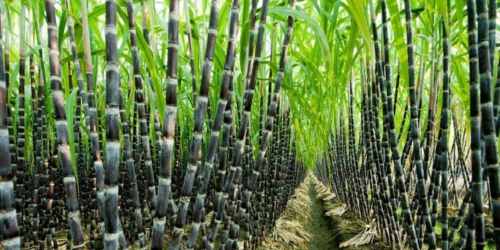In Nigeria, there is a huge possibility to launch a prosperous sugarcane-growing business. However, Nigerian agricultural entrepreneurs and farmers are failing to capitalize on this opportunity. When you consider that Nigeria is Africa’s second-largest consumer of sugar, you can see how the market for sugarcane growing can be highly lucrative. But how does one go about starting a sugarcane farming business in Nigeria? What do you need to succeed in sugarcane farming? All of these questions, and more, will be thoroughly investigated in this handbook.
What Are Sugarcanes?
Sugarcane, also known scientifically as Saccharum officinarum, is a long perennial grass grown for its juice, which is processed into sugar and other products. It grows to a height of 2m to 5m in sunny, hot, tropical places such as India, Brazil, Nigeria, and China. Nigerian states such as Adamawa, Kaduna, Katsina, Jigawa, Sokoto, Taraba, Kebbi, and Kano produce around 20% of the sugarcane processed in mills. Sugarcane growing is a key agricultural activity in Nigeria and Africa, with substantial economic rewards.
What is Sugarcane Farming In Nigeria?
Sugarcane farming and production refer to the preparation, planting, management, and final harvesting of sugarcane.
Sugarcane farming is the cultivation of long perennial grasses for the purpose of producing sucrose or sugar. Saccharum officinarum is the scientific name for sugarcane. A tropical climate with high humidity and enough water is required for the crop. The goal of sugarcane farm research is to increase yields, disease resistance, and drought-tolerant types.
Read Also: Avocado Farming In Nigeria: All You Need to Know
Sugarcane is a high-yielding crop that may generate up to 150 metric tons of sugarcane per hectare under ideal conditions. The yield per hectare of sugarcane growing in Nigeria and Africa varies by region, with some places having higher yields than others. High-quality planting materials, irrigation, and fertilizer application can all help to boost output yield.
Sugarcane growing is important economically in Nigeria and Africa because it provides raw materials for both local sugar manufacturing and export. Sugarcane growing is a significant source of revenue for farmers in Nigeria and throughout Africa, and it has created jobs throughout the value chain, from farming to processing and marketing.
So Why are we Not Producing the Sugar we Need Locally?
Sugar cane growing has enormous potential, but just a few people are taking advantage of it. One explanation for this could be that many potential investors lack the necessary knowledge to assist them in the process of establishing a sugarcane plantation.
It is worth noting that the Nigerian government has provided incentives to those in the sugar business by granting investors a 5-year tax-free holiday. This reinforces the concept that there is nothing preventing the country from having additional sugarcane farmers.
Read Also: Saffron Farming: Step-by-Step Guide On How Saffron Can Be Grown
Aside from sugar production, sugarcane has various other advantages. For example, the fiber left over after extracting sugar cane juice is extremely important in the biofuel, paper, and construction industries. This raw material can be used to generate electricity in the biofuel sector. Sugarcane can also be used to manufacture rum and local beverages.
You really have nothing to lose if you take advantage of the opportunity to engage in sugarcane farming, which is why we’ve decided to assist you by giving a step-by-step tutorial.
Types of Sugarcanes Used For Sugarcane Farming in Nigeria
Hundreds of meals and drinks are created all over the world with sugar as a key element. Diverse types of sugars are employed in some circumstances to provide diverse flavors, tastes, and colors. For various reasons, many types of sugarcane crops are processed into sweeteners and sugars. Sugarcane is classified into three categories:
#1. Crystal Sugarcane
Crystal sugarcane is used to make the cube and granulated sugars available in many households, businesses, and pastry shops. When boiled, this sugarcane contains an extraordinarily high proportion of sucrose, which crystallizes. This method is used to produce refined sugars.
Other sugarcane crops do not yield nearly as much sucrose as these canes. Crystal canes are stiff and fibrous due to their high sucrose content, rendering them inedible in raw form.
Crystal canes are also a biomass source that produces excess ethanol as an alternate energy source.
#2. Syrup Sugarcane
This sugarcane variety contains glucose, sucrose, and many sugar molecules that diminish its sugar concentration. As a result, the amount of crystals remaining is minimal and cannot be used to make sugar. As a result, syrup sugarcane is used to make various sweeteners such as molasses, packed juice, and syrup.
Plastic containers and cardboard paper are made from sugar cane hulls.
#3. Chewing Sugarcane
This cane variety’s fibers are 90% water and 10% sugar. Chewing canes do not crystallize when heated due to their low sugar content. Without being processed, chewing canes are sweet, supple, and delicious.
Local traders and hawkers offer this crop as a fruit snack, and some types are boiled to make syrup.
Benefits of Sugarcane Farming in Nigeria
There are numerous advantages to sugarcane cultivation, and the following are some of the more common:
- Food production: Sugarcane is a rich source of sucrose and is utilized in the creation of confectioneries, drinks, and syrups.
- Energy production: Sugarcane may be used to make biofuels such as ethanol, which can be used to power automobiles.
- Job creation: Sugarcane farming generates jobs for farmers, farm laborers, and workers in processing plants.
- Income generation: Sugarcane growing is a profitable business, and farmers can earn a lot of money from their harvest.
- Soil improvement: Sugarcane contributes to soil fertility, minimizes soil erosion, and promotes soil health.
- Carbon sequestration: Sugarcane absorbs CO2 from the atmosphere, helping to prevent climate change.
- Renewable resource: Sugarcane is a renewable resource, and its production can be continued for a long time.
- Livestock feed: Sugarcane can be used as livestock feed, which is an important source of nourishment for animals.
- Medicinal properties: Sugarcane juice is known for its therapeutic benefits, which include alleviating dehydration, and fever, and increasing renal function.
How to Start Sugarcane Farming in Nigeria
To ensure a successful endeavor, starting sugarcane farming in Nigeria takes planning and preparation. Here’s a step-by-step guide to starting a sugarcane farm:
#1. Choose A Suitable Land
Sugarcanes thrive on specific types of land. As a result, if you want your farm to be very profitable, you need to be aware that a specific soil type gives the best outcomes for sugarcane farming. In well-drained loamy soil with a neutral reaction (pH 6.5-7.5), sugarcane thrives, according to Kinikan. This means that in order for your sugarcane business to be successful, you must first select a good plot of land.
Taraba, Kastina, Sokoto, Kano, Kwara, Kaduna, and Niger are the best states in Nigeria for sugarcane production. Another factor to consider while selecting a property for your sugarcane farm is that, while sugarcanes thrive on well-drained soils, they also require a lot of rain to be fruitful. Irrigation, on the other hand, can compensate for the absence of significant rain further north.
#2. Source The Right Canes To Cultivate
Sugarcane is grown by correctly burying the cane in the ground to allow the bud to germinate and take root. To maximize your profits from sugarcane farming, you must choose the best stems to plant. Sugar cane with thick stems is the best plant since it is the most prolific.
When purchasing stems, ensure that they are thick and contain buds that are sprouting so that you do not purchase dead canes that will not germinate.
#3. Plant Properly And Take Care Of The Crop
Dig a furrow about 4 inches deep and plant the stems horizontally so that the buds are appropriately positioned to facilitate germination. When planting your sugarcane stems, make sure they are not in a shaded area so that the crop may get adequate sunlight to grow effectively.
You should not simply fold your arms and wait after planting your crops. You must maintain your farm in order for your crops to grow properly. Sugarcanes are commonly infected with pests and deadly insects that can hinder crop growth. As a result, you must apply insecticides, germicides, and pesticides to keep them at bay and protect your farm.
Aside from insects, diseases, and pests, you must also weed your sugarcane farm on a regular basis to allow it to flourish. Sugarcanes take about a year to mature, so you’ll have to keep weeding until the sugarcane is tall enough to give shade and prevent weeds from sprouting around it.
Finally, fertilize your crops to ensure that they attain their full potential. Experts say that nitrogen fertilizers are used primarily by sugarcane. With proper planting and fertilizer, your farm should produce enough harvests to ensure a return on investment.
#4. Harvest Your Crops The Right Way
In Nigeria, there are two ways to harvest sugarcane, depending on the size of your farm and the quantity you sell. For example, if you sell hundreds of sugarcane sticks, you can use the manual approach; however, if you sell thousands of sugarcane sticks, you may need to utilize the mechanical way. The mechanical process entails lighting fire to the sugarcane farm and then chopping the sticks at scale.
#5. Sell Your Crops
If you want to be a huge success in sugarcane farming, you must start with this step. To accomplish so, you must first identify the markets and partners to whom you wish to sell. Do you wish to sell to individuals who will resale in local markets? Or Do you wish to sell at the local market on your own? Do you want to form strategic alliances with manufacturers of agro-allied products and pharmaceuticals? Will you begin supplying sugar factories across the country?
Whatever you decide, make sure you start the procedure before investing in sugarcane cultivation. Yes, sugarcane farming will always be profitable, according to the National Bureau of Statistics data, but you must develop a proper framework that will allow you to benefit smoothly.
Does Sand Make Sugarcane Grow Faster?
It will grow quicker than wheat because, unlike wheat, sugar cane will just sprout another sugar cane block. Sugar cane grows at the same rate on dirt and sand.
Does Sugarcane Need Light to Grow?
Light. Sugar cane, like other grasses, grows swiftly and demands full sun. Allow your sugar cane at least 8 hours of direct sunlight per day.
How Long Does Sugarcane Take to Grow?
Although the crop develops swiftly, maturation takes months. The growing season for sugar cane ranges from 9-16 months in warm climes to 18-24 months in temperate climates. The sugar cane growth cycle is divided into four stages: The stage of establishment in which the plant germinates and emerges.
What is the Best Fertilizer for Sugarcane?
Azospirillum is a typical biofertilizer recommended for N nutrition since it can colonize Sugarcane roots and fix 50 to 75 kg of nitrogen per hectare per year from the atmosphere.
Which is the Best Method of Growing Sugarcane?
Ratoon cropping is the ideal way of growing sugarcane since it saves labor, lowers production costs, and matures early.
Why Does Sugarcane take so Long to Grow?
Sugarcane grows quite slowly in dry mass throughout both the early and late stages of its life cycle. In comparison to other tall warm-climate grasses, the rate of leaf formation increases less with temperature. This results in a poor rate of tillering and a delayed start of stem elongation.
What is the Best Block to Grow Sugarcane in?
Sugar cane must be planted on soil blocks near water. It is recommended to use running water canals so that harvested cane flows to the end of the stream for a simple gathering. This design works well.
To summarize
Finally, sugarcane cultivation is a viable agricultural endeavor in Nigeria and throughout Africa. It has several advantages ranging from economic to health and environmental. Sugarcane is a multipurpose crop that may be used to make sugar, molasses, and ethanol, among other things. Because of its large biomass yield, it has the potential to be a renewable energy source.
Related Articles
- ROOT BEER BRANDS: The Best List of Root Beer Brands to Follow in 2023, Updated!!!
- Banana Farming in Nigeria: Everything You Need To Know
- Legit Online Business That pays In Nigeria
- Grasscutter Animal Farming In Nigeria: All You Need To Know
- Best Online Business Ideas to Try Out in Nigeria 2023






